Interview: Tom Brennan Talks EDUCATION, EDUCATION, EDUCATION at Trafalgar Studios
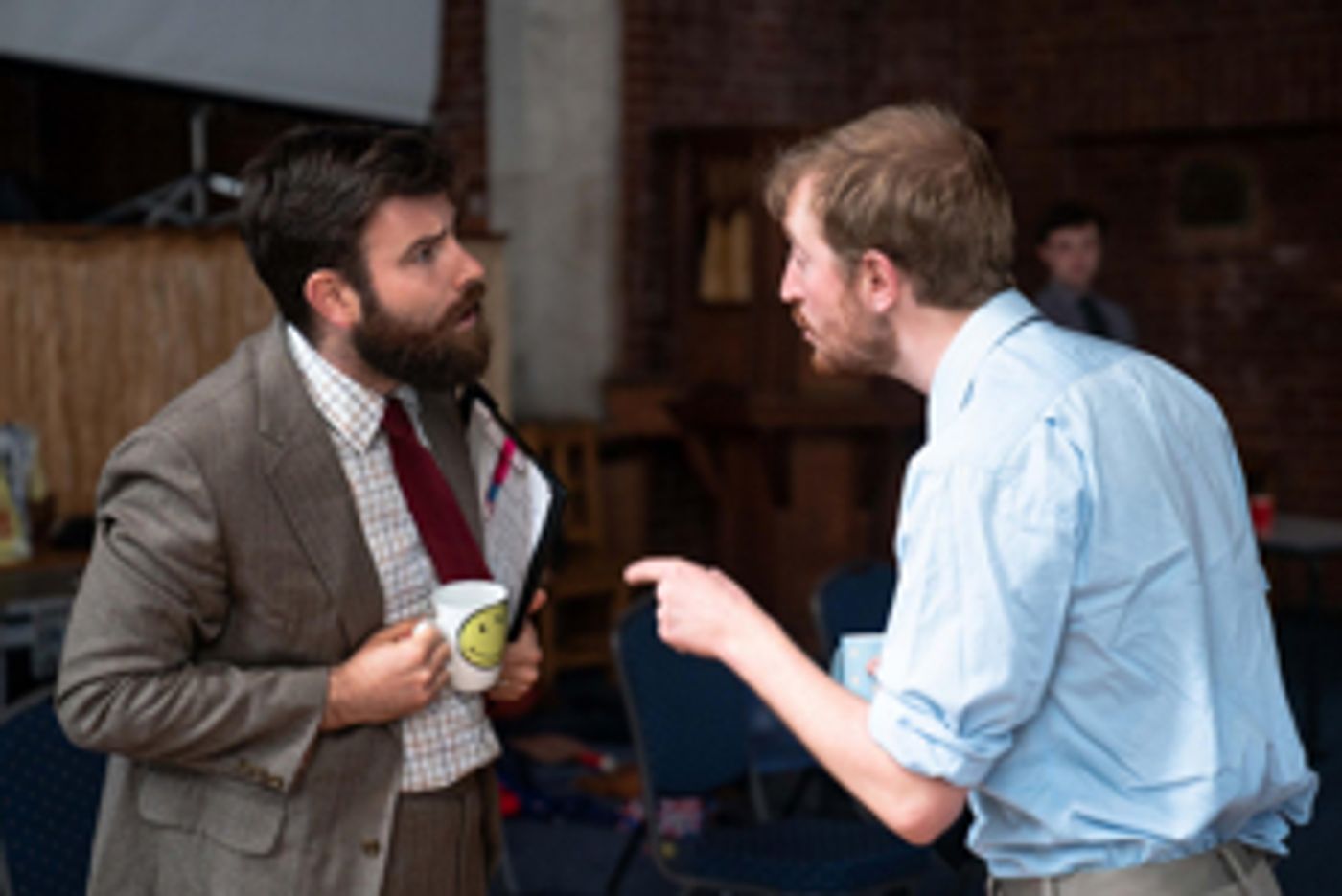
Education, Education, Education is The Wardrobe Ensemble love letter to the 90s and is jam-packed with more hits than "Now That's What I Call 1997" including Oasis, Katrina and the Waves and the Spice Girls, it's crammed with Teletubbies references, jokes about Take That and the Macarena.
BWW talks to Tom Brennan, founder member of The Wardrobe Ensemble, who plays Paul McIntyre.
Tell me a little about the play.
It's set in 1997, on the morning that Tony Blair is elected as Prime Minister, in a state school very similar to the ones we [The Wardrobe Ensemble] grew up in. It's a story about optimism and pessimism, using 1997 as a lens to talk about the country as it is today.
But it's also a very funny farce about teachers getting through this very chaotic day (in our universe, the last day of term). They're a little stretched and the Year 11s are preparing to trash the school.
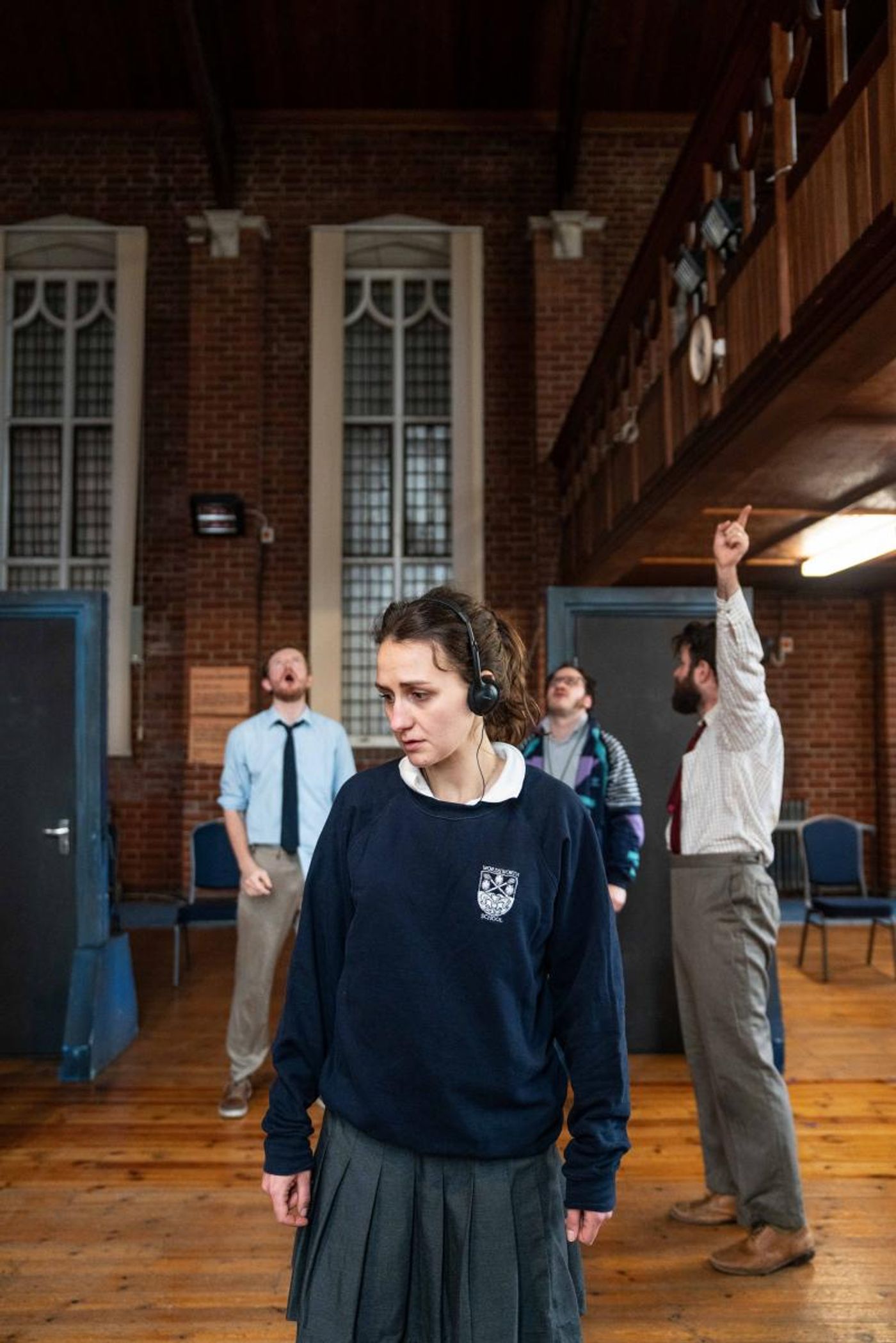
The Wardrobe Ensemble have a reputation for taking "a sideways look at politics" - is that right?
Not always! As a company, we have questions that we're interested in. In the past, a lot of our work has been about looking back at a moment in history and reflecting on how things have changed.
For example, we've just taken a show back to the Bristol Old Vic - 1972: The Future of Sex. It's set on the evening that David Bowie first appeared on Top of the Pops as Ziggy Stardust. It tells the story of three couples who hook up on that night, and talks about sex, sexuality and gender and how that's changed between then and now.
I think setting shows in the past has always felt like a great way to talk about "Now" because there's a sense of reflection. Education, Education, Education uses nostalgia as a tool and our associations with the music and culture of the time to make you think and laugh.
Why choose that particular moment (1997)? And how has the show changed (if at all) since its debut at Edinburgh in 2015?
It's such an interesting thought - how you relate to your time period.
The first show we ever made was called Riot, about the opening of the Edmonton Ikea shop in 2005. The first performance was at Edinburgh in 2011 and it was such a flop. We immediately rewrote the beginning of the show and went to bed wondering what we were going to do the next day.
And that night the London riots started, and our show was the hottest on the Fringe. We had done nothing!
To try to chase a certain Zeitgeist is a dangerous game to play, but the things that interest you, will interest other people too.
We started making the show in 2015 and the plan was to think about the fact that we had worked our entire professional lives under a Conservative government, (receiving arts subsidy!)
We wanted to tie in with 20 years since 1997 - and what a different generation that was. We'd all grown up with Blair's promise of Education, Education, Education and experienced funding that supported the gift of a brilliant drama education. We thought theatre would be a good life for us!
Reflecting on the 20 years since then felt about right - but nobody expected Corbyn, Brexit and the rise of the Far Right. It's been so unexpected and dramatic, happening over the time when we made the show and now touring it. Everywhere we go in the country, the reception changes slightly. Rather than us doing anything specific, the show is always different because a line sounds different or has a different relevance in a particular place on a particular day.
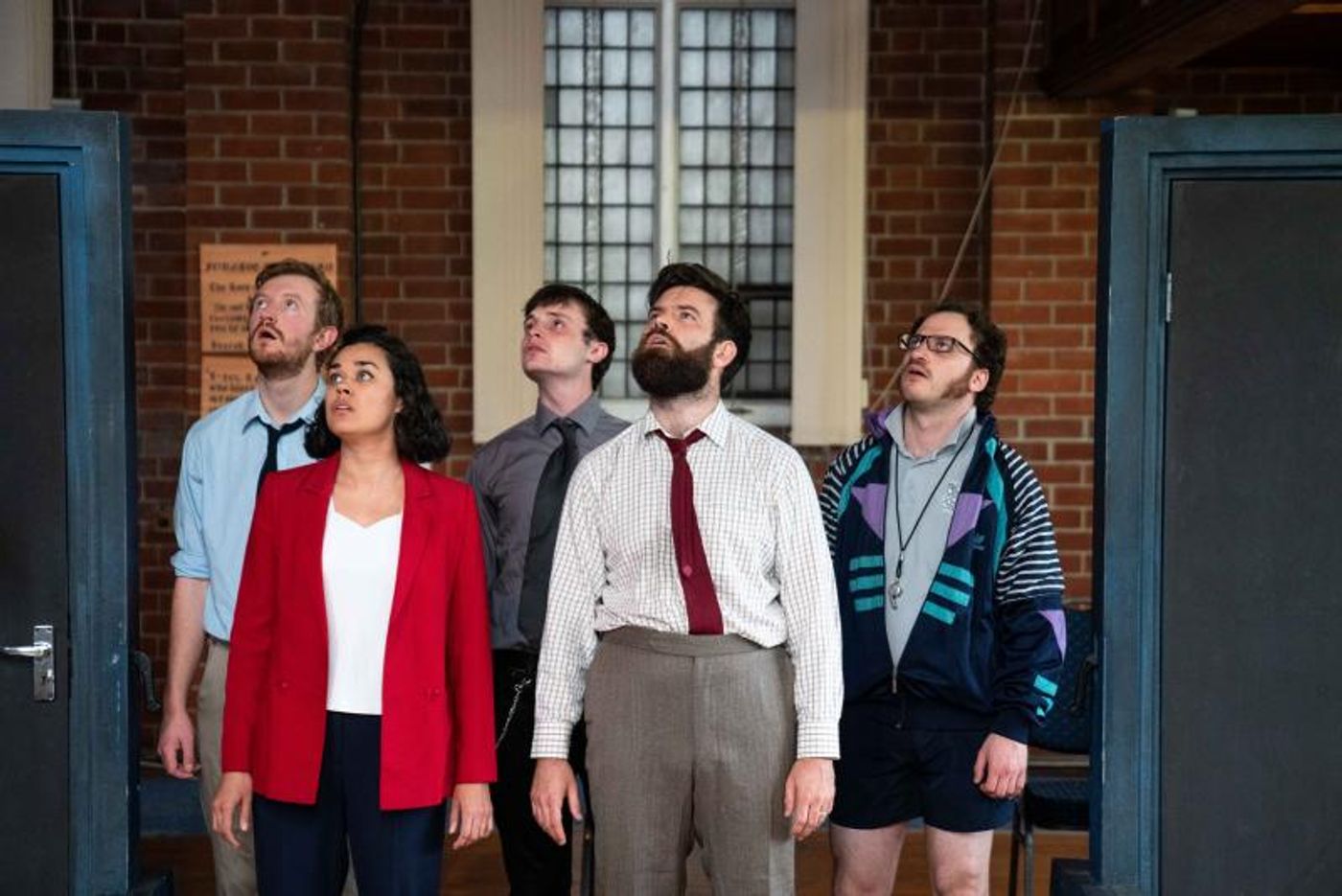
You guys are too young to remember the strange optimism that clung to the Blair Government in 1997, so how do you research the material?
We met a lot of teachers and spoke to a lot of people about that era. We spoke to our own teachers - we were at school at that time.
Every school in the country was renovated and had an influx of cash - yet, in 2019, teachers are having to write home to parents to get the money to buy toilet paper. How did it come to this?
We heard from a teacher about practice at that time, especially the relative lack of bureaucracy. He would set a task, leave the classroom and meet the other teachers to play a bit of cricket in the corridor!
We've never pushed a particular political agenda, preferring to ask questions - we try to be as balanced as possible. If you're a bigtime Tory, I think you can enjoy the show - it's not a Blair nostalgia-fest!
I was thinking you'd get more heat from the "Oh... Jeremy Corbyn" generation for whom Blair is persona non grata.
I'll never forget Nick Clegg compromising on student fees. That felt like a big moment of betrayal for us.
There are always these collective moments when you're united with your generation or community around a feeling of frustration... or optimism.
There was a feeling around that arts education was creating "Cool Britannia", with the likes of Alexander McQueen (and Oasis and Blur) - how do you feed that into the show?
The soundtrack of the show comprises all those classic songs. The notion of "Cool Britannia" is fascinating - a positive cultural artistic patriotism in this country! I can't begin to think about it - it's strange and dirty and complicated in quite an interesting way.
To hear the songs - the Spice Girls! - sends you to a particular moment of feeling joyous. Those tones of voices in a pop song - you just know they're important for so many people. We also use references to school dinners, turkey twizzlers, potato smiley faces: and tamagochis!
We're quite "pop", but these things do have currency, because everyone has a the shared understanding of them. In terms of making new shows, we're always thinking of our audience and what they remember or understand about a specific moment. It's using nostalgia as a tool to get us somewhere.
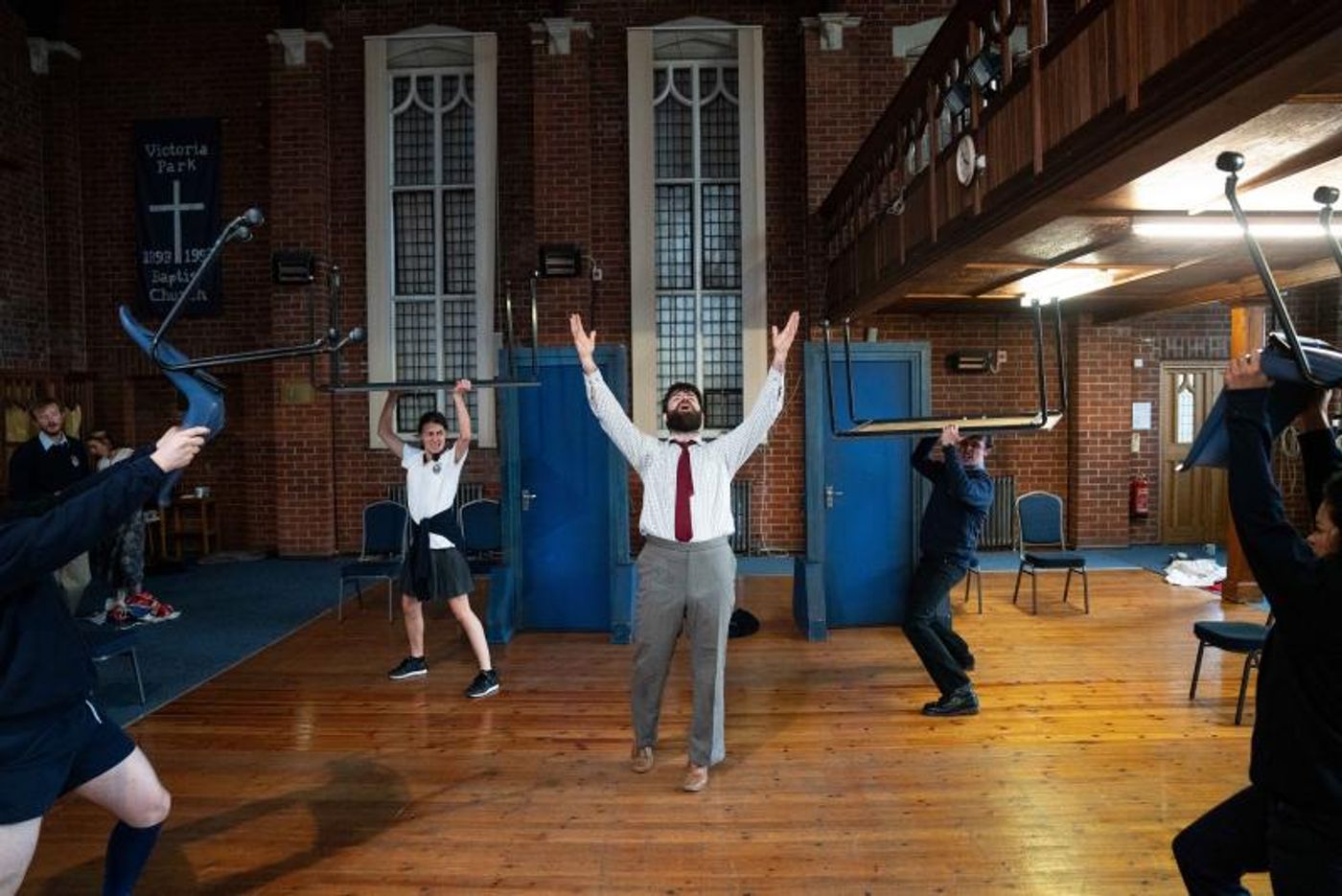
Is that still possible today, in a more atomised culture, with people using streaming services on demand?
The sense of things being contained within a national identity has been lost and I can't imagine it happening again in that positive way. We can find our tribe globally, which is really exciting, but the idea of cultural national identity around an artistic theme probably can't happen in the same way.
We're a South West company, associated with a regional scene - Bristol music has always been a fundamental influence for us, being surrounded by music growing up.
What do you want your audience to take from the show?
I'm making it sound like it's a heavy piece of intellectual political theatre, but it's a really good night out! It's a funny, punchy 80 minutes all-through, with some of the best gags in the West End.
Because we develop stuff over a long time and write it together, we have a real range of creative voices in the room. You get a sense of that discussion in terms of the jokes and the politics. If there's one scene that you don't like, I presume that the next scene you will like.
What do you mean by "we write it together"?
Every rehearsal room is different. No company works quite like us. We do a lot of improvisation, play games to get us into spaces and we also do a lot of research.
We're developing our playwright skills, thinking about character and dramaturgy, where previous work might have been more concerned with energy.
We do come from a devising background - it's what we grew up making as teenagers at Bristol Old Vic Young Company.
We try to work democratically, seeking consensus, but we do have directors who have the final say, but whose main job is to facilitate the group's creation.
Some characters in the show were discovered on the second day of rehearsals, where some came much later. I remember the character of Emily Greenslade (played by Emily Greenslade) who is now the heart of the show, originated in Emily being in the room and us not having a part for her! She became the centre of the show - we always want to be flexible like that.
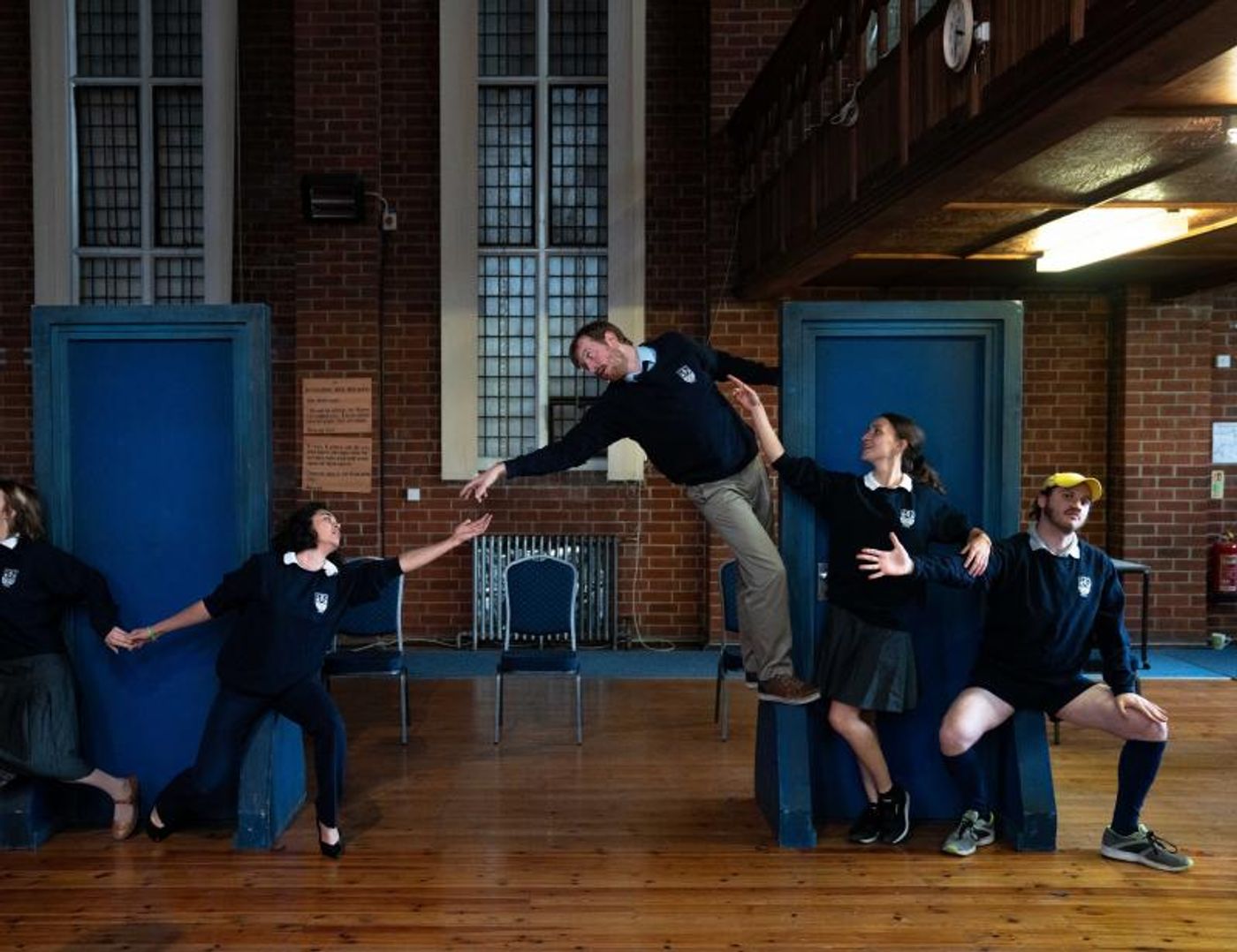
How do you balance the inevitable tensions that build up between creative people all pitching stuff into a finite space?
That's taken us a really long time to develop - and we're still working through it now.
The philosophy is that the work is only as good as everyone's voice - you have to trust and believe that the play that ten of us write is better than the play that one of us writes.
So you have to simultaneously believe that you're the best playwright in the room with a lot to offer and that you're the worst playwright in the room and need to listen to the others.
The humility that requires often does not reside in the same personality as the self-belief and drive required to start with nothing and create?
Totally. The drive, if manifested properly and respectfully, is also a useful energy - saying, "I really want to make this play!" Often that's one person in the company at the very beginning.
This show began as an idea from Jesse Jones, one of the directors. He had a version of it in his head that he had to release when he gave the idea to the group.
We often talk about the fact that when you give an idea to the group - a show, a scene, a moment - then it's not yours any more, it's owned by the group. That way, making it as good as it can be is the responsibility of the group as much as that person who offered it.
What's been useful for us are the fundamental principles we hold - short, sharp devising tasks of 25 minutes and then sharing it with the room. Don't worry, don't fret. And then it's the group's job to make something of it.
It compartmentalises the creation process, so you never feel this mess of ideas, keeping the room as structured as possible.
We also want to improve on the last piece we made. If that's your metric for success (rather than, say, making a masterpiece) then it's much easier to make.
An unfair question. I saw The Play That Goes Wrong at the same Trafalgar Studios where I shall watch Education, Education, Education. Do you see your show going on that same journey? Would you want it to?
It's really important to recognise that we've toured a lot - in this country and in rural America for example - and it's really important to remember that you owe all those audiences the very best show possible.
Yesterday we were walking by The Lion King - the idea of running this show night after night! What do you lose? Does the audience know? Do they care?
I'd love this show to have as much life as possible - it's a beautiful show and I'd like it to be seen by as many people as it can be. It has an enjoyable energy and a lot of people can take a lot out of it.
At the same time, we should remember the core relationship in theatre - that between the audience and the actor. When it becomes "a machine", the worry is that you may lose that relationship.
What do you do after the run?
We're making a new show, commissioned by Royal and Derngate Theatre and Complicité that we're taking to the Fringe. It's our version of a big family drama - it's called The Last of the Pelican Daughters. It's about four sisters who return home after their mother has died.
We're always trying to find our version of a thing. So if 1972 was our version of a sex comedy and Riot was our version of a horror film and Education is our version of a farce, Pelican Daughters is our version of a family drama. How do you do that without being naturalist essentially? What's our generation's relationship with the past, with its heritage and history.
Education, Education, Education is at Trafalgar Studios from 31 May until 29 June.
Photos James Bullimore.
Videos

